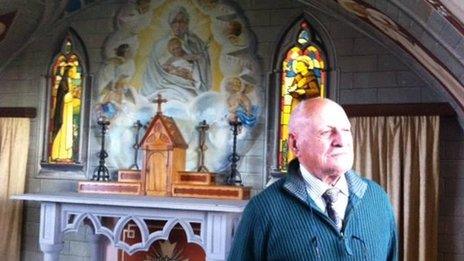VE Day: The enemy soldiers left in Britain after WW2
- Published
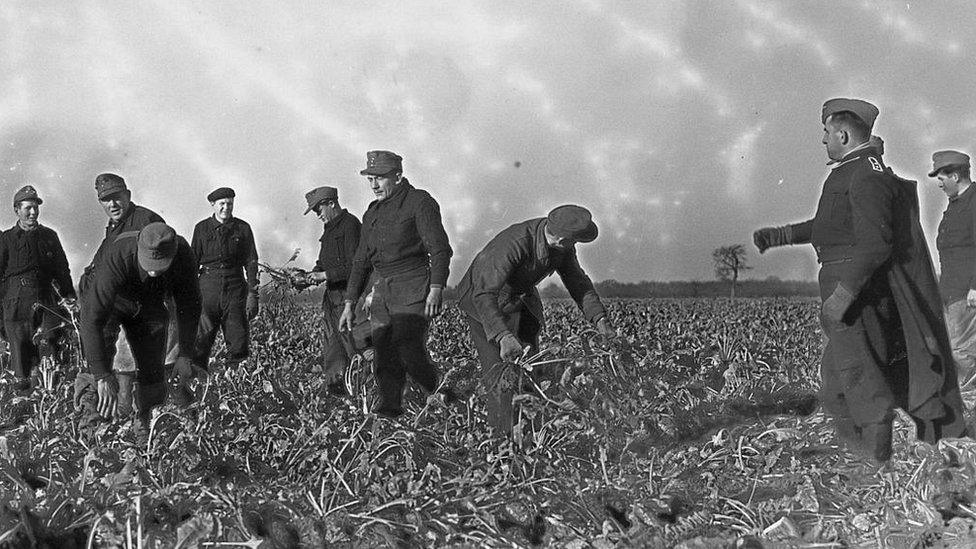
At first Germans were given the hardest jobs on farms, like harvesting sugar beet
The parties and bunting of VE Day marked the end of hostilities, but World War Two was still affecting hundreds of thousands of former enemy soldiers - and those who lived near them - in camps across the UK.
While Hitler's plans for invasion in 1940 were defeated, an army of German and Italian troops did occupy parts of Britain.
Held in camps across the country, they were put to work - and even after the end of the war, many stayed on and made friends, fell in love and integrated into British life.
Giovanni Bredariol was 21 and serving with the Italian navy when captured at Tobruk in Libya. Sent to a camp near Loughborough in Leicestershire, he volunteered to cook for the British guards.
"These officers very likely came to enjoy pasta and pizzas long before they became such a popular part of the English diet," noted his daughter, Dorina Voyle.
"He returned with [his wife] to England to settle in 1948, worked on a farm in Wigston, and then became a builder."
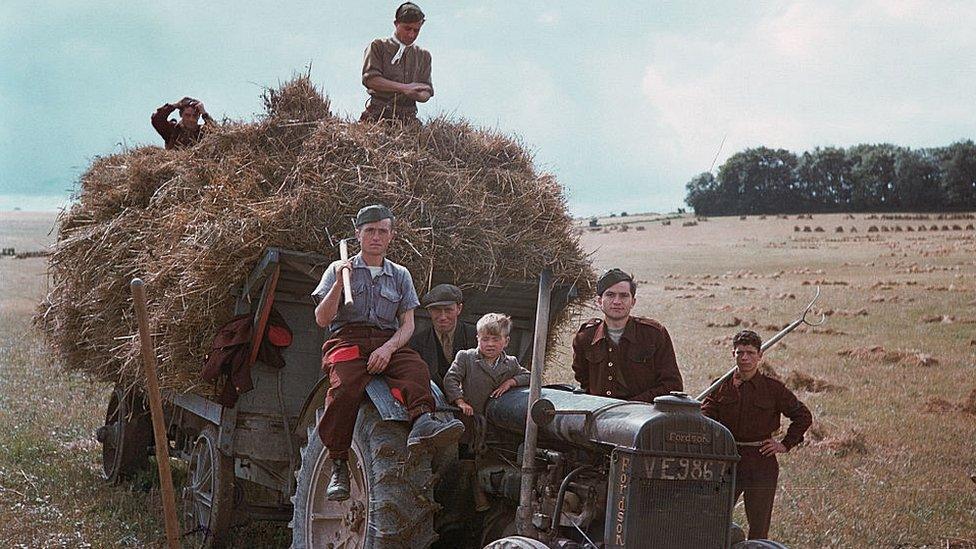
Italian workers were put to work in fields with locals
Salvatore Zuncheddu, also 21, worked on farms in Somerset after being captured in North Africa.
He made a good impression on one owner, Ted Moxey, who when the war ended, asked him if he would come back and work for him.
Mr Zuncheddu went to Italy to get his wife and returned to England.
"'Nan Moxey' taught my mother to speak English," remembered his daughter Linda Hocking.
"She was welcomed into the family and treated like a daughter. My father took work on the local farm and became "one of the boys"."
He joined in the local community life, including joining the Burtle Silver Band playing the trumpet.
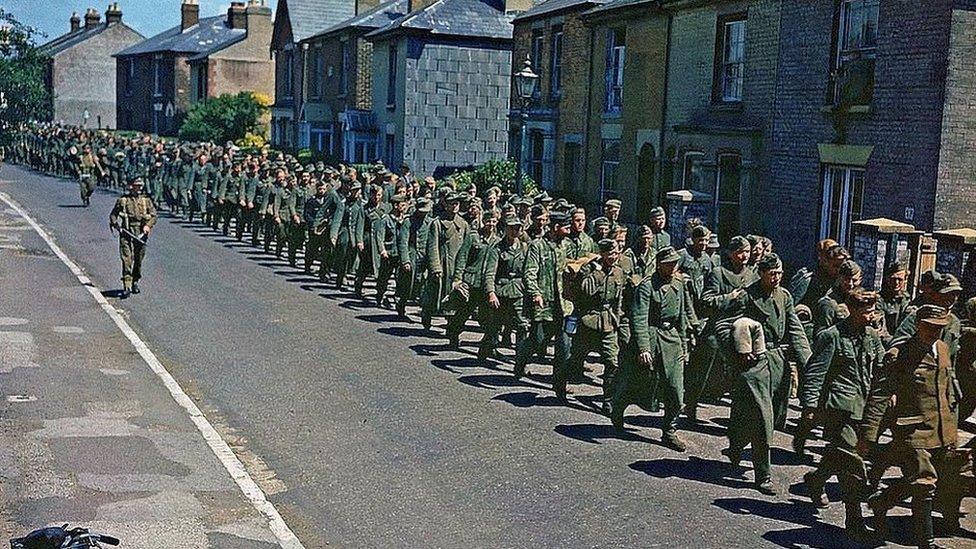
The invasion of Europe by the allies brought a huge influx of German prisoners
Thousands of Italian prisoners started to arrive in Britain after victories in 1941.
Due to manpower shortages, the demand for their work, especially on farms, was huge and thousands were shipped in and put up in various places.
Robin Quinn, author of Hitler's Last Army: German POWs in Britain, said: "It was very makeshift. All sorts of buildings were used as accommodation, from stately homes to old mills.
"When the Red Cross asked to know how many camps there were, the government responded they had no idea."
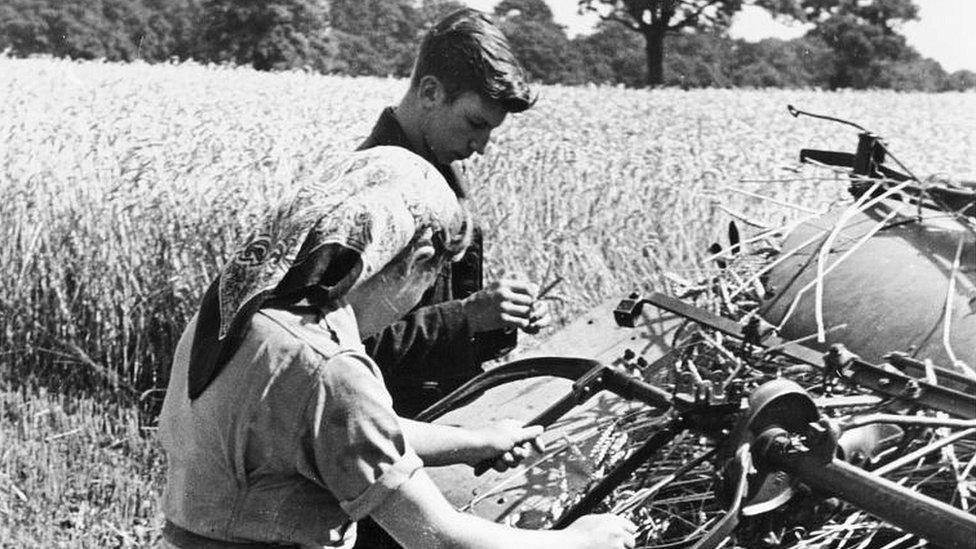
Strict rules about prisoners meeting locals and land army girls were quickly relaxed
Eventually there were more than 130 purpose-built camps, with many other buildings pressed into service, and soon it felt like there was one on the outskirts of almost every town.
Seen as "docile", the Italian soldiers quickly became part of the wartime landscape with a total of about 150,000 eventually arriving.
The German prisoners, however, were for a long time regarded as more dangerous and the hardened Nazis were identified and sent to camps in the US, Canada or Scotland.
By March 1945, 70,000 Germans were working in Britain but their numbers peaked after VE Day, when approximately 140,000 were sent from the US.
At first they were given the toughest farm work, like cropping sugar beet, while many others were sent to London to help with building work for the 1948 Olympics, external.
Mr Quinn said: "The country was still desperately short of manpower and transport. Britain was in no hurry to send them back."
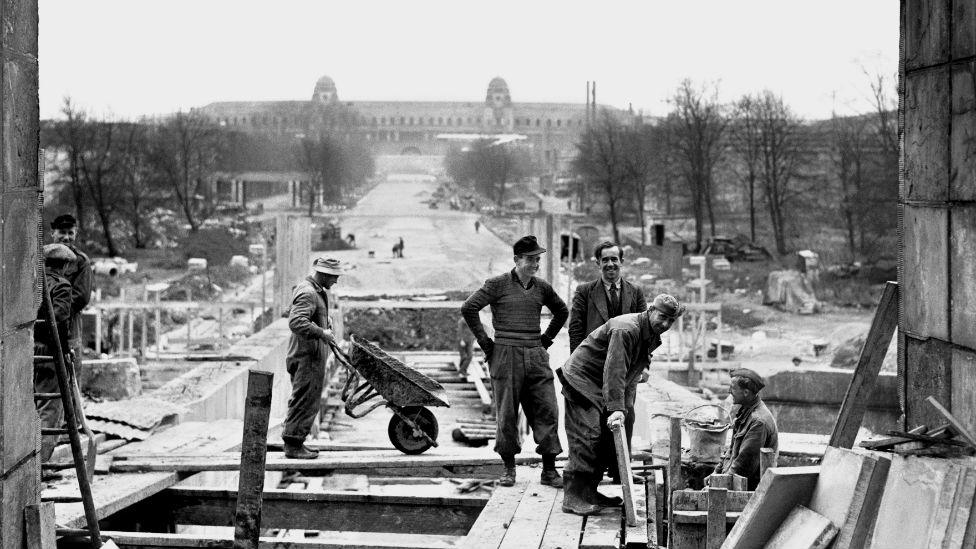
Demand for manpower - including the 1948 Olympics - slowed repatriation of German prisoners
The peak number of German prisoners reached 402,200 in September 1946. At Christmas the same year, they were given permission to visit British homes.
Hans Behrens, who was still a teenager at the time, was invited for Christmas dinner by a family in Burgess Hill, Sussex, with whom he became firm friends.
"To this day I call them 'my English parents'," he later said.
"I thought about going back to Germany all the time. I wanted to go home, but the more I got to know England the less I wanted to go back.
"By the time I moved in with my English parents the draw of home became less."
He eventually settled and set up a firm importing German electronics into Britain.
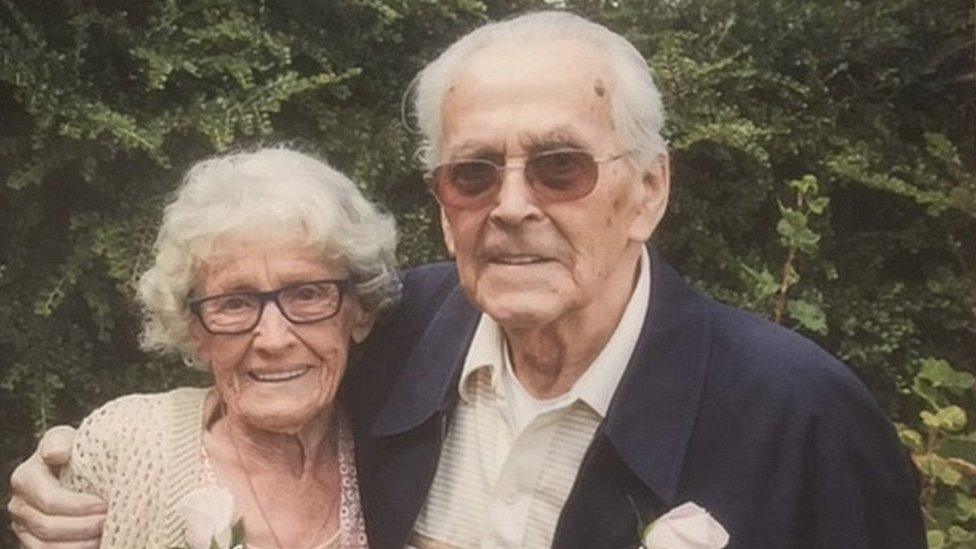
Berthold and Peggy Beer remained married until his death in 2017
Many of the 25,000 Germans who elected to stay in Britain did so after finding wives and girlfriends.
Gary Paterson said his wife's grandfather, Berthold Beer, was sent to work on a farm near Rugeley, Staffordshire, where he met his future wife, Peggy.
"He wasn't allowed to take her to the cinema so it was just fleeting moments until Peggy got a job working on the same farm.
"They got married in 1948 but there was so little housing, they and some others moved back into a then disused prison camp to live."
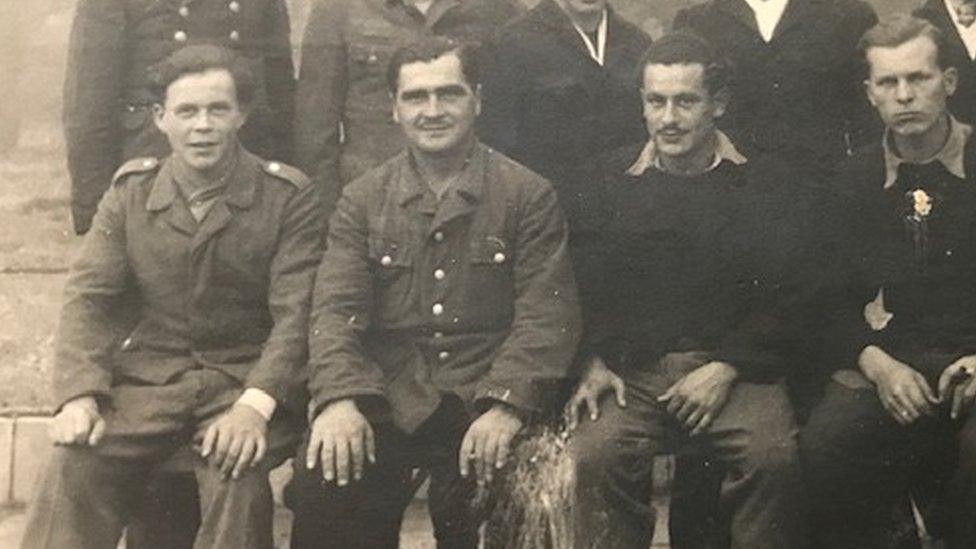
Berthold Beer (front row left) was captured in Normandy when his tank was blown up
The last prisoner did not return to Germany until 1948. There are no statistics for Italians staying in the country because their status changed in 1943 from prisoners of war to "co-operators" when Italy surrendered.
Ultimately there were more than half a million enemy soldiers held prisoner in the UK.
Most of the camps have been lost but a few, including the museum of Eden Camp, stand witness to this chapter of British history.
"Perhaps the most remarkable thing is how little disruption there was," said Mr Quinn.
"There were few escapes, very little crime and their presence allowed people - some of whom had never met a foreigner before - to see they were just people too."
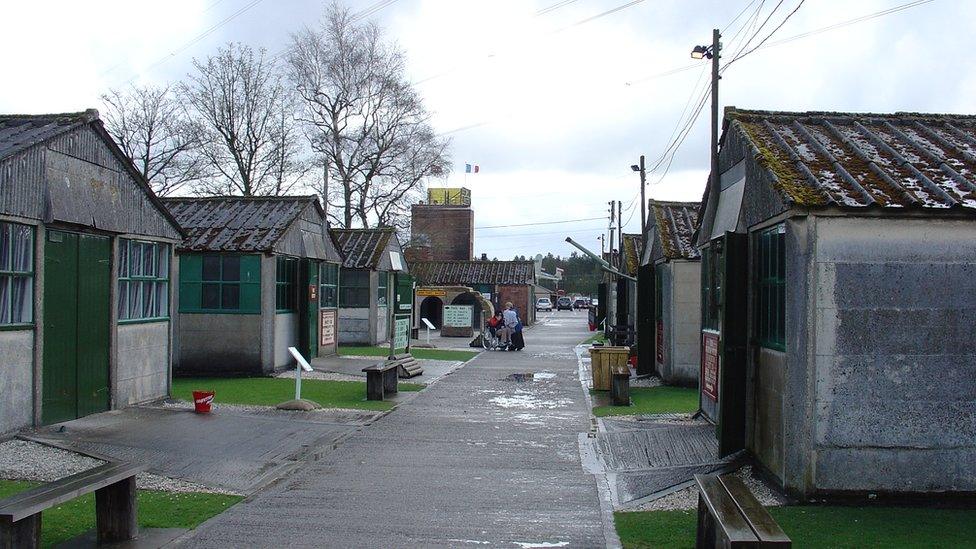
Eden Camp in Yorkshire, one of few surviving PoW camps, is now a museum
- Published7 May 2020
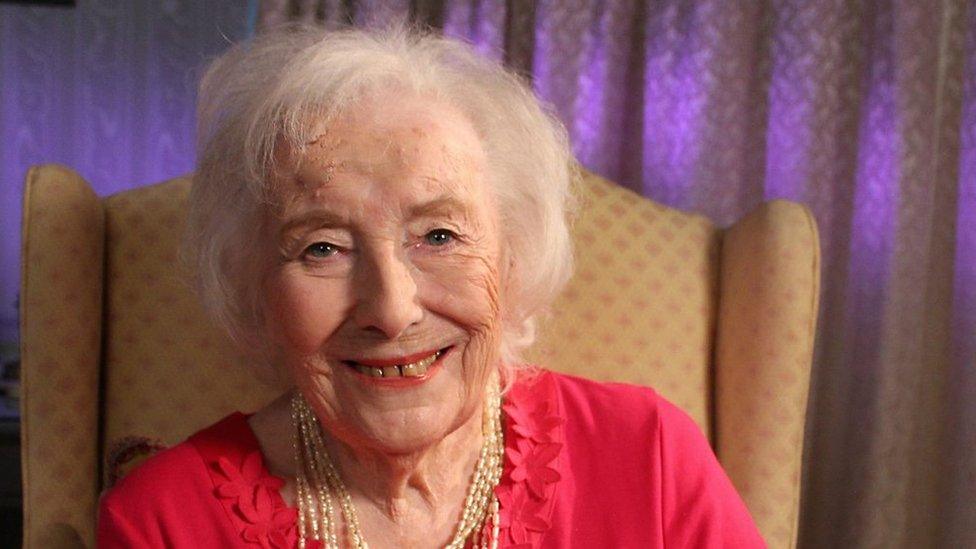
- Published15 March 2015
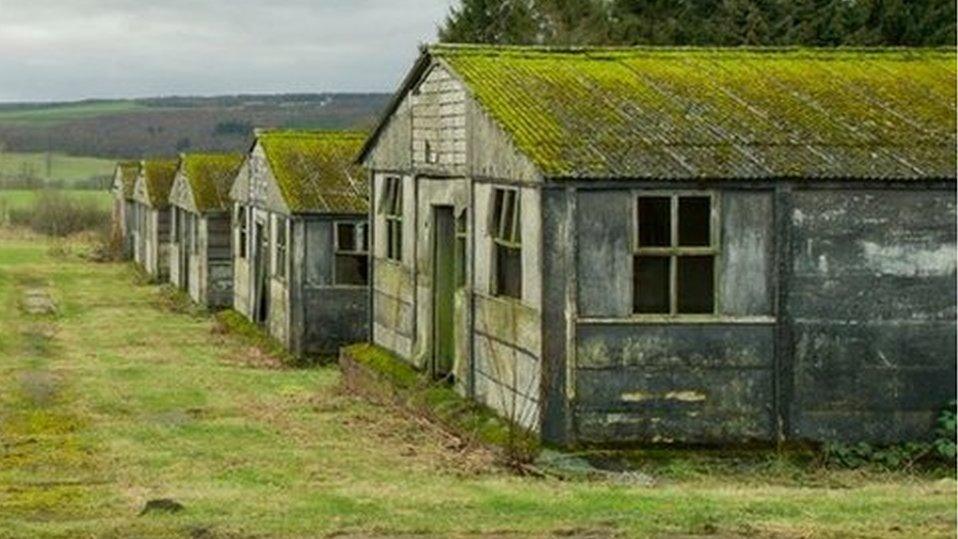
- Published1 November 2013
